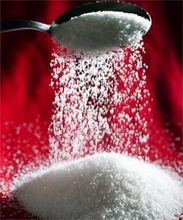 A new study published in The Journal of the Academy of Nutrition and Dietetics reveals 75% of formulated food contains some type of sweetener, and the most commonly listed sweeteners are corn syrup, sorghum, cane sugar, high-fructose corn syrup (HFCS) and fruit juice concentrate.
A new study published in The Journal of the Academy of Nutrition and Dietetics reveals 75% of formulated food contains some type of sweetener, and the most commonly listed sweeteners are corn syrup, sorghum, cane sugar, high-fructose corn syrup (HFCS) and fruit juice concentrate.Researchers at the University of North Carolina used full ingredient list and Nutrition Facts label data from Gladson Nutrition Database and nationally representative purchases of consumer packaged foods from Nielsen Homescan in 2005 through 2009 to investigate the use of caloric sweeteners (including fruit juice concentrate) and non-caloric sweeteners in consumer packaged foods.
They examined 85,451 uniquely formulated foods and found 68% use caloric sweeteners, 1% use non-caloric sweeteners, and 6% use both caloric and non-caloric sweeteners. Calorie sweeteners are used in more than 95% of cakes, cookies, pies, granola, protein and energy bars, ready-to-eat cereals, sweet snacks and sugar-sweetened beverages. Non-caloric sweetener are used in more than 33% of yogurts and sports and energy drinks, 42% of waters (plain or flavored), and most dietetic sweetened beverages.
Across unique products, corn syrup is the most commonly listed sweetener, followed by sorghum, cane sugar, high-fructose corn syrup, and fruit juice concentrate. They also found 77% of all calories purchased in the United States in 2005-2009 contained caloric sweeteners and 3% contained non-caloric sweeteners; 73% of the volume of foods purchased contained caloric sweetener and 15% contained non-caloric sweetener.
The researchers said their study poses a challenge toward monitoring sweetener consumption in the United States by discussing the need and options available to improve measures of caloric sweetener and non-caloric sweetener and additional requirements on Nutrition Facts labels on consumer packaged foods.





